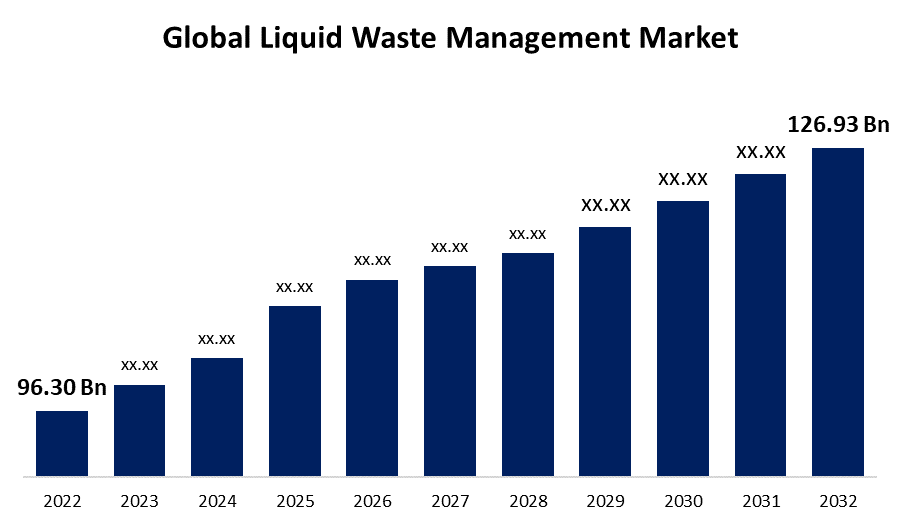Industrial Wastewater Treatment: Personalized Solutions for Facility Wastewater Obstacles
Wiki Article
Understanding the Comprehensive Process of Liquid Waste Disposal: Finest Practices and Environmental Effect Considerations
The management of liquid waste disposal is a diverse issue that needs a thorough understanding of different best methods and their linked ecological influences. From the kinds of liquid waste generated to the approaches used for collection, treatment, and last disposal, each action plays a crucial function in guarding environments and public wellness.Sorts Of Fluid Waste
Recognizing the various kinds of liquid waste is necessary for effective management and disposal practices. Liquid waste can be generally categorized right into numerous types, each requiring distinct handling and treatment approaches.Industrial liquid waste usually has unsafe materials, including heavy steels, solvents, and chemicals, produced during producing processes. These wastes demand stringent regulative compliance to protect human health and wellness and the atmosphere. Domestic fluid waste mostly refers to wastewater generated from houses, consisting of sewer and greywater, which, although much less hazardous, can still position considerable dangers if incorrectly taken care of.
Agricultural fluid waste, including drainage from farms, often contains plant foods and pesticides that can result in ecological deterioration otherwise dealt with sufficiently. Medical liquid waste, generated from healthcare centers, includes contaminated fluids such as bodily liquids and chemicals, needing specialized disposal techniques to protect against infection and environmental contamination.
Last but not least, oil and oil waste, typically created by restaurants and automotive sectors, can cause severe clogs in sewage system systems if not taken care of appropriately. Comprehending these classifications promotes targeted techniques for therapy, conformity with guidelines, and reliable disposal approaches, eventually advertising ecological sustainability and public wellness safety.

Collection Approaches
Reliable collection approaches are vital for the appropriate monitoring of fluid waste, making sure that it is gathered safely and efficiently before therapy or disposal. Different methods are used depending upon the type of liquid waste generated, the quantity, and the certain attributes of the waste.One usual approach is using devoted collection containers or sumps, which are created to capture fluid waste at the source. These systems commonly integrate pumps that facilitate the transfer of waste to bigger storage containers or treatment centers. Additionally, mobile collection devices equipped with vacuum cleaner technology are used in circumstances where waste is produced intermittently or in hard-to-reach places.
For commercial setups, closed-loop systems can successfully minimize spills and leakages, enabling the recovery and reuse of fluid waste. It is also vital to educate personnel on appropriate collection methods to mitigate risks connected with dangerous compounds.
In addition, implementing regular upkeep routines for collection tools guarantees optimum performance and security. The integration of sophisticated surveillance systems can improve collection performance by providing real-time data on waste degrees and possible risks. On the whole, effective collection techniques are fundamental to sustainable liquid waste administration methods.
Therapy Processes
Therapy procedures play a vital duty in the monitoring of fluid waste, changing possibly dangerous materials into risk-free effluents or multiple-use sources - liquid waste disposal. These processes can be broadly categorized into physical, chemical, and biological techniques, each tailored to attend to certain impurities present in the waste streamPhysical therapy methods, such as sedimentation and filtration, job by eliminating put on hold solids and particle matter. These techniques are usually the primary step in the treatment chain, properly lowering the load on succeeding processes. Chemical treatments involve making use of reagents to neutralize unsafe materials, speed up heavy steels, or oxidize natural contaminants, thereby boosting the safety of the effluent.
Biological treatment procedures, including triggered sludge systems and anaerobic food digestion, take advantage of the natural capacities of bacteria to break down raw material. These methods are especially reliable for wastewater having naturally degradable toxins. Advanced therapy innovations, such as membrane layer filtration and advanced oxidation processes, are increasingly utilized to accomplish greater degrees of purification.
Including a mix of these therapy approaches not just guarantees conformity with governing criteria however likewise advertises ecological sustainability by recovering valuable sources from fluid waste.
Disposal Options
Just how can companies ensure the risk-free and accountable disposal of fluid waste? Reliable disposal alternatives are essential for protecting public wellness and the environment. The primary approaches consist of land disposal, incineration, and therapy adhered to by discharge right into local wastewater systems.Land disposal entails the careful control of fluid waste in assigned garbage dumps, ensuring that it does not seep into surrounding soil or water. Incineration, on the other hand, topics fluid waste to high temperatures, converting it into ash and gases, which call for appropriate filtration to reduce discharges. This method is ideal for harmful wastes that can not be treated through typical ways.
In cases where liquid waste can be dealt with, companies may select chemical or organic treatment processes to reduce the effects of damaging components prior to releasing the treated effluent right into metropolitan systems. This path usually lines up with regulatory needs, making sure that the effluent meets safety and security criteria.
Ultimately, companies must conduct comprehensive analyses of each disposal option to identify its practicality, considering aspects such as waste composition, regulative conformity, and potential dangers to health and wellness and the environment. By picking suitable disposal approaches, businesses can add to a responsible waste administration method.
Ecological Influence
The ecological influence of fluid waste disposal is a crucial factor to consider for companies looking for to minimize their eco-friendly impact. Improper disposal methods can bring about considerable contamination of water resources, dirt degradation, and negative effects on local environments. For example, hazardous liquids can leach into groundwater, posing risks to drinking water materials and Check This Out marine life. Additionally, the discharge of neglected or inadequately treated waste right into surface area waters can result in eutrophication, causing oxygen depletion and the Discover More Here subsequent fatality of fish and various other microorganisms.
To mitigate these influences, organizations should embrace ideal methods such as carrying out strenuous waste therapy procedures, promoting recycling and reuse, and adhering to regulatory requirements. By taking an aggressive method to fluid waste management, entities can substantially lower their ecological impact while sustaining sustainable growth objectives. Inevitably, a comprehensive understanding of the ecological impacts related to liquid waste disposal is important for notified decision-making and accountable stewardship of natural deposits.
Verdict
Efficient monitoring of liquid waste is essential for guarding environmental integrity and public health. Eventually, a comprehensive understanding of fluid waste disposal not just alleviates ecological effects yet likewise fosters a dedication to responsible resource administration and ecological stewardship.The administration of fluid waste disposal is a multifaceted problem that requires a comprehensive understanding of numerous best practices and their associated ecological influences. From the types of liquid waste generated to the approaches employed for collection, treatment, and last disposal, each action plays an essential function in securing ecological communities and public health.The environmental effect of fluid waste disposal is an essential consideration for companies seeking to minimize their environmental footprint. Ultimately, a thorough understanding of the ecological influences associated with fluid waste disposal is important for notified decision-making and accountable stewardship of all-natural sources.
Eventually, an extensive understanding of fluid waste disposal not just minimizes ecological impacts however visit homepage likewise fosters a commitment to liable resource management and environmental stewardship.
Report this wiki page